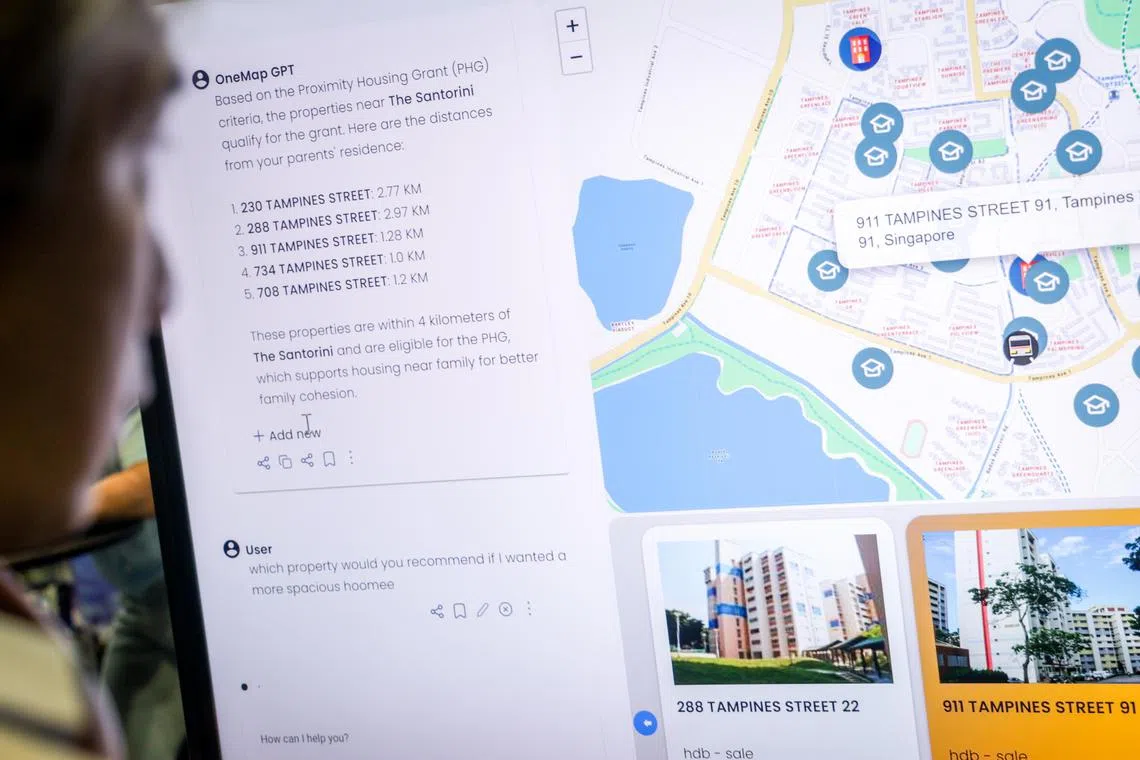Free and accessible public data facilitates citizen-government engagement, say city leaders
Sign up now: Get ST's newsletters delivered to your inbox

A panel on empowering communities through geospatial data said that doing so will allow for richer analyses, which will ultimately benefit citizens.
PHOTO: LIANHE ZAOBAO
SINGAPORE – Data collected from citizens should be made publicly available at no cost, said city leaders at the World Cities Summit on June 3.
Speaking at the Suntec Singapore Convention and Exhibition Centre, a panel on empowering communities through geospatial data – information associated with particular locations – said that doing so will allow for richer analyses, which will ultimately benefit citizens.
Mr Vincent Karremans, vice-mayor of Rotterdam in the Netherlands, said that even without charging for data, cities are already making money from it, because they are able to make better investment decisions.
He was responding to a question posed by panel moderator Ng Siau Yong, director for geospatial and data at the Singapore Land Authority, who asked panellists if proceeds from selling data should be put back into improving communities, or whether data collected using tax dollars should be made free.
Referring to such data, Mr Karremans said: “In a way, we are already making money with it, because we are making better investment decisions – so there is already value from providing it for free.”
He explained that using such data, private developers and the government might be able to save money through their decisions and channel this money into public causes.
Earlier during the panel, Mr Karremans said that geospatial data had allowed his city to decide which areas were most in need of infrastructural upgrades and allocate resources there.
He gave the example of choosing which sewers to upgrade, based on data that showed which areas were most vulnerable during heavy rain.
Singapore Management University president Lily Kong agreed that citizen data should be free to access.
Monetising it “necessarily means that we are curtailing the opportunity for different groups to access the data that can actually bring much value in interpretation and possibly solution”, she said.
Professor Kong added that integrated education and research is needed for data to be properly analysed and interpreted.
While one can be proficient with data manipulation and analysis, she said, “without the understanding of society, social relations, cultural norms, ideologies, et cetera, it is very easy to sometimes make the wrong interpretation”.
Acknowledging that concerns around data privacy exist, Prof Kong said that nevertheless, where data can be released, it is “important for citizen science, and for academics to undertake research, because from that, we get additional perspectives that can actually contribute to the virtuous loop of making life better”.
Melbourne Lord Mayor Sally Capp said “knowledge is power”, and city governments that are closely connected to community have “an obligation to empower our citizens”, adding that society is “better off for it”.
Asked by Mr Ng if they were concerned that making data easily accessible could be abused – such as by advocacy groups who use it to argue for benefits for a select few – Ms Capp said that data gives governments and citizens a common platform to discuss policy.
Governments must be prepared to use the same data to explain why policy suggestions will or will not work, she added.
Mr Karremans said that having data that governments and citizens can discuss is preferable to situations where citizen groups try to make a case for something that is non-quantifiable.
“We can have a conversation based on the same figures, and that makes it more transparent and also more fruitful (for citizens) to converse with us,” he added.
Prof Kong said that as societies mature, access to data increases the possibility of participatory governance.
“That then makes for higher-quality debate in society that can then lead to better outcomes,” she added. “But, of course, it does require readiness to engage openly and to acknowledge that actually, sometimes the perspective of interest groups might actually be valid.”



